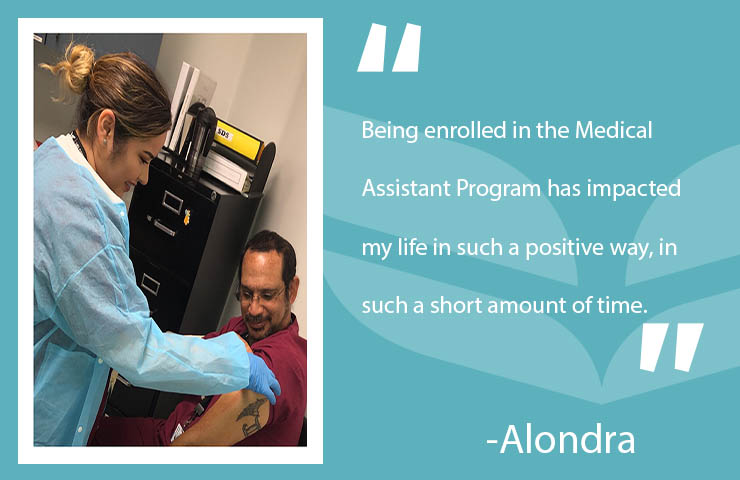Should You Become a Medical Office Specialist or Medical Assistant?
| Update: September 03, 2024
Launching a career in the medical field is great for people who like to feel good about helping others, are personable, detail-oriented, and find comfort in earning a steady paycheck. Plus, becoming a medical assistant or medical office specialist is a good start if you are interested in health care and eventually would like to move up into a nursing program or other sector of the medical industry. However, to get started in either job position, most employers expect people to have some sort of secondary school certification. Let’s look at the similarities and differences between these two roles.
Before we do that, if you’re interested in becoming a medical assistant, consider enrolling in UEI College’s Medical Assisting Program. The program can be completed, and you can earn your diploma in as little as 10 months.
SIMILARITIES BETWEEN MEDICAL OFFICE SPECIALIST AND MEDICAL ASSISTANTS
Medical office administrators and medical assistants are alike in the sense that they both do clerical work such as managing filing systems, answering phones, and understanding how the office printers and copiers work. Both of these roles have direct contact with the patients, therefore it’s important to be outgoing, communicative, and enjoy dealing with customers.
At most health care establishments, both of these jobs also require an additional certification beyond a high school education. Since both medical office specialists and medical assistants are in demand it’s a good idea to get a certification and start in either of these positions and see where your medical career takes you.
BENEFITS OF STARTING A CAREER AS A MEDICAL OFFICE SPECIALIST OR ASSISTANT
There are many benefits to becoming a medical office specialist or a medical assistant, besides the satisfaction of helping people improve their quality of lives. The most notable ones are that it offers career stability and flexibility, as many medical assistants and office administrators start out in private practices (however, hospitals and outpatient care centers are always looking for qualified candidates in these positions as well). Plus, once you are certified as a medical assistant or office specialist, it opens the door to advanced training opportunities.





